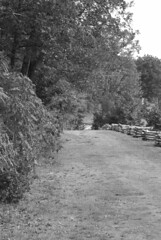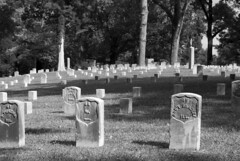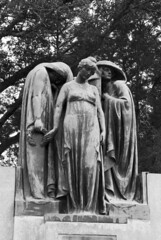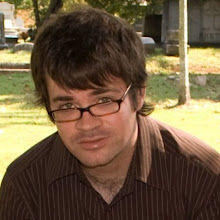Last Saturday I took a trip to the Shiloh National Military Park in Hardin County, Tennessee, site of the Battle of Shiloh in 1862. It was the bloodiest two days in American history up until that time, and among the bloodiest of the Civil War. As the Confederate army retreated, over 3,000 Americans lay dead between the two sides, and over 16,000 wounded.
As a passionate Southerner, I have been steeped, for better or worse, in the romance of the Civil War and the Lost Cause, the glorification of its battles and heroes and dead. No matter now much I learn and understand of the horrors of the war, the wrongness of its causes — Lee, Jackson, Stuart, Johnston, all have seemed such larger-than-life figures, such Southern gods; their moments seem so epic, so romantic. Even on the verge of becoming a historian, I still have struggled with this enchantment.
I am taking a course this semester in the Civil War and Reconstruction. It is the first time, other than watching Ken Burns or reading The Killer Angels, that I have truly focused my mind on the historical Civil War (as opposed to the mythical one). And both of those works, while bringing home the war in an emotional way, tended to bolster my romantic perceptions. In studying Shiloh this term, I caught a distant sense of its senselessness, its brutality, its tragedy. My interest was piqued. It being so close to Huntsville (a mere three-hour drive), I decided I needed to go, to experience that for myself.
 |
| The Hornets' Nest, the bloodiest spot of the battle. |
I am a person who gains a lot from physical connection. As a historian and a genealogist, it has always been very important to me to visit the graves of those whom I am studying. To be in the place where these people laid down their dust takes me beyond the page, makes them real and physical, brings them alive for me, in the same way that visiting a new place brings alive its dot on a map. Experiencing an abstract concept in a physical way brings to me a transcendent, almost spiritual connection. Oftentimes in the midst of writing papers I have visited the graves of my subjects and prayed for inspiration.
And in visiting Shiloh, I had hoped for the same kind of connection. Something to transcend both fact and romance, to make it real to me, to bring home the reality and the horror of the event. I wanted to feel it, to at last lay to rest this romantic infatuation. I got more than I could possibly have hoped.
 |
| Union graves at Shiloh National Cemetery. Fallen Confederates were laid in mass burial trenches. |
From the very moment I drove onto the park, I felt an overwhelming sense of heaviness. Something grave and terrible had happened here, and I could feel it hanging over the battlefield like a black pall. I nearly shuddered as I felt it, and it did not go away. Throughout the park there are scattered monuments to various leaders, units, and turning points. And it gave the whole place the feeling of a vast cemetery. But it felt so much rawer, so much more immediate, so much more funereal, than any cemetery I had ever been to; it felt like being present for the funeral of 3,000. Driving slowly through the tour route felt so much like a funeral procession. A great well of sadness sprang up inside me. I encountered something deep and spiritual; I grasped it physically; I felt it. I felt what I came for. I felt the horror. And I'll never forget this feeling. It will affect me as a historian, as a Southerner, as a person, from now on.






2 comments:
I understand your feeling completely. I felt similarly when I visited the Antietam battlefield a few weeks ago.
This post is awesome! You made me feel the sadness from just reading your post.
Post a Comment